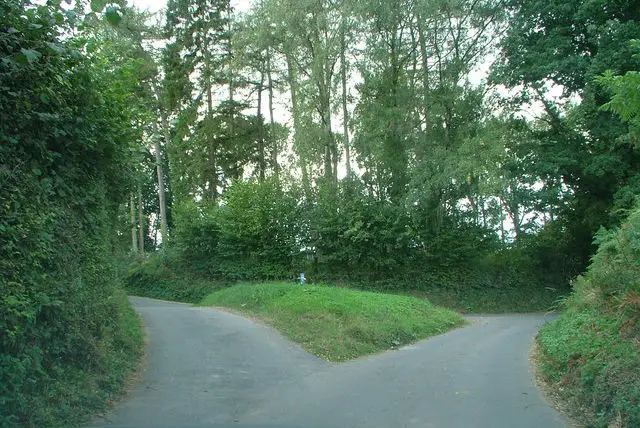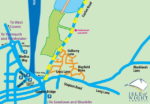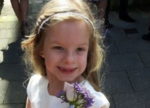Jonathan Dodd’s latest column. Guest opinion articles do not necessarily reflect the views of the publication. Ed
There are times in everyone’s lives when everything seems to be going all right, and then there are times that seem to be full of trouble. I’m not sure whether this is true, because we tend to look out at our lives from behind the curtain of our current thoughts. It is true that when we’re feeling happy, our lives seem bathed in a warm glow, but when we’re miserable, everything looks grey.
This seems to happen a lot, and we’re puzzled by it because we forget that our memories and how we look at them are not the same thing. You can have a lovely holiday with someone, and you can have happy memories of it for ages. If the relationship ends badly, you can still summon up the same memories, but they’re no longer seen through a veil of happiness.
Here is the news for Parrots
I’m reminded of an old Monty Python sketch. A newsreader at a desk faces the camera. “Here is the news for Parrots. There was a crash today on the M1, which involved several vehicles. Twenty-seven people were killed and many hurt. Happily, no parrots were involved.” I know that’s not a proper quote, but it’s how I remember it and I don’t want to risk hearing the right words, because I might not remember it so happily after that.
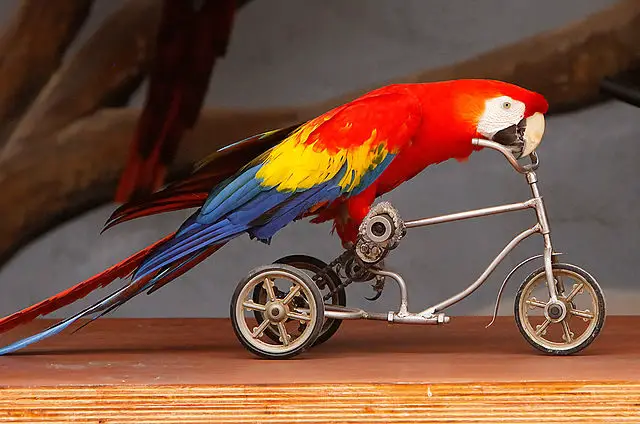
And that’s how it works. We’re selective in our minds about what we notice and how we feel about it. We don’t think we can change, but of course we change all the time, mostly without even realising it. And if we don’t realise that we’ve changed, we won’t have any idea about how we’ve changed, or what we’ve changed into.
Having things stuffed into us from outside
Unfortunately, this is the normal state of mind for the vast majority of the human race. It’s because all our education is about having things stuffed into us from outside. There’s no attempt to help anyone understand what’s happening inside them. Imagine the fuss if a Minister for Education suggested that “Learning to Understand Yourself” was added to the National Curriculum.
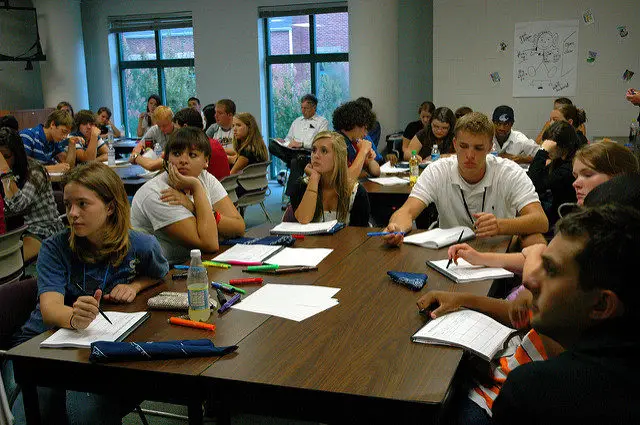
I think we’d have a problem implementing such a course anyway, because most teachers are part of the human race too, and they’re no more prone to self-enquiry than anyone else. When the Government stopped teaching grammar there were concerns that generations of future teachers would no longer know any grammar, and the whole thing would be lost. In the case of self-enquiry, it was never lost, because it was never begun.
It increases the chances of being understood
I’m not a stickler for grammar as part of the curriculum myself, but I am interested in the use and misuse of language. If we can’t construct a sentence to express our thoughts accurately, how are we to hope that we can express our thoughts to others in a way they can understand? The value of sentences is that they can be spoken and heard, or written and read. And this increases the chances of being understood.

I also believe that turning our thoughts into sentences makes us improve our thoughts. It’s a sort of feedback loop. You think something, then you try to put it into words. When the words don’t make sense, you have to examine the thought again in your effort to express it, and you find yourself improving the quality and clarity of your thought. This is good for the mind as well as being the basis of all proper communication.
To beef up my internal logic muscles
Of course, I’m a writer, so I care deeply about this. I also feel passionately that practising this internal discipline has not only made me a better communicator, it has also helped me to beef up my internal logic muscles, and I’ve learned to apply this process to anything I encounter, including myself.
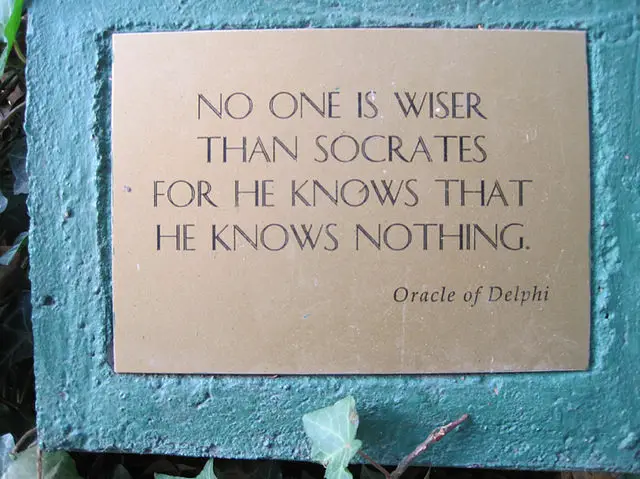
Wisdom may never be achieved, but one thing is certain, wisdom doesn’t just arrive unbidden. It’s hard work, and requires that you extend yourself and change your behaviour, especially when you realise there are things about yourself that you need to improve.
You’ll never fully achieve it
Another of the benefits of wisdom is the understanding that there are always things about yourself that need to improve. So the pursuit of wisdom involves the understanding that you’ll never fully achieve it. But you can begin to approach it, and in my humble opinion it’s a thing we should all be striving for.

The thing that upsets me is how rarely the concept of wisdom is ever even mentioned, or thought of. It seems to me that it’s actively avoided in many situations. Politicians are often accused of talking down to people, as if they’re stupid. The truth is that they do this very thing because they know they can, and they can get away with it.
They end up turning everything into a circus
The sad thing about politicians who do this is that they succeed. The danger is that their success is only in acquiring power, which they will inevitably misuse. They will see every situation as a chance to improve their standing rather than an opportunity to bring wisdom to the table in an attempt to improve the world. They will continue to see the people as stupid, because that’s what brought them their power. And they end up turning everything into a circus.
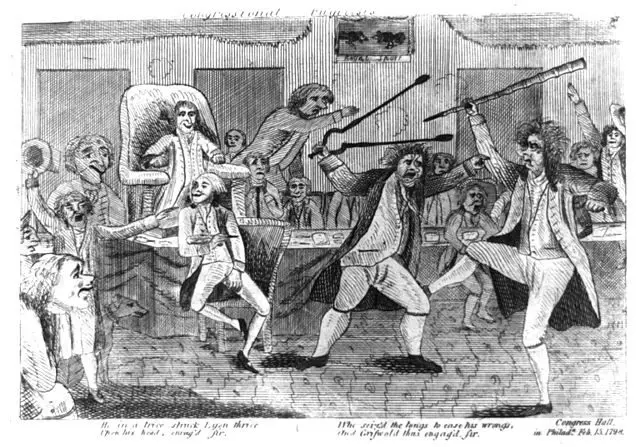
I look at the current referendum and those shouting from each side across the void of ignorance. They shout numbers, as in the amount any household will be better/worse off if we stay/leave. The truth is that they don’t know, they’re only guessing, and they’re making up numbers that are calculated to scare us stupid voters. They also make up numbers of immigrants, calculated to raise the temperatures of voters who care either way. But they don’t know how many people might arrive or leave, regardless of whether we stay or go.
Our lives can change with every breath we take
The truth is that nobody knows what’s going to happen. We all know that our lives can change with every breath we take. This knowledge has the power to terrify or exhilarate each of us. Often simultaneously. Nobody had any idea that there was going to be a crash back in 2008, least of all, apparently, those now 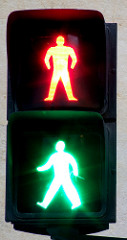 prophesying doom today if we stay or go. And nobody wants to admit that.
prophesying doom today if we stay or go. And nobody wants to admit that.
Look at the question on the referendum ballot paper. As usual, everything you need is right there, if only you look hard and think about it. Here it is. The actual question. “Should the United Kingdom remain a member of the European Union or leave the European Union?” There’s nothing there about being better off. There’s nothing about immigration or the NHS or anything else. It’s the age-old question, “Should I stay or should I go?”
That thing you rely on deep in your core
Any question with this simplicity and directness requires a simple and direct answer. You can only answer “remain” or “leave”, and you only have your own internal instincts to rely on, because you don’t know what the world will look like five minutes from now, let alone in five years. This is what life is all about. Making decisions without any real facts to rely on. This is the normal state of affairs.
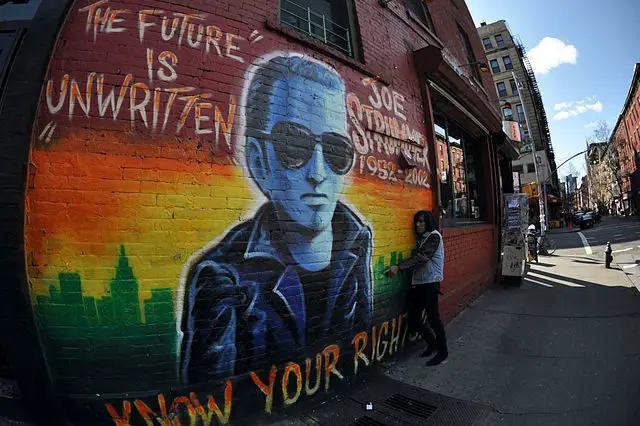
Sometimes we’ve just got to make up our own minds, when faced with a fork in the road. When there’s no signpost, you just have to jump, and the only thing you have to guide you is your heart, or your instinct, or your faith, or whatever you name it. That thing you rely on deep in your core, that you listen to when all the other voices are quiet and there’s no advice you can trust.
At these moments, many people panic and grab hold of the nearest tor the most familiar thing. But making a decision need not be like drowning. Me, I’d like to think that a certain amount of self-understanding and some rudimentary wisdom is a far more useful thing to rely on.
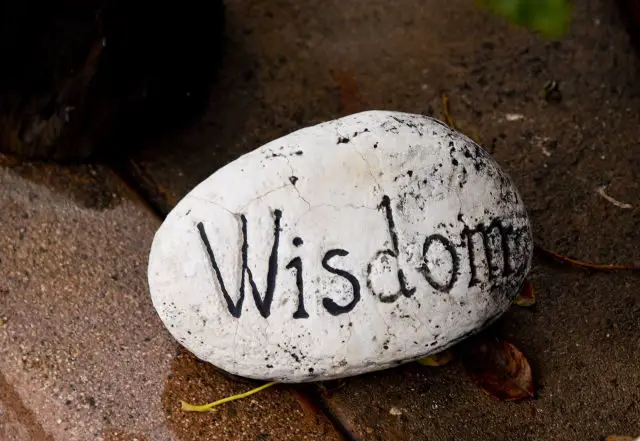
If you have been, thank you for reading this.
Image: Nicholas Mutton under CC BY 2.0
Image: Snowmanradio under CC BY 2.0
Image: Lead Beyond under CC BY 2.0
Image: Chiswick Chap under CC BY 2.0
Image: Jim Carroll under CC BY 2.0
Image: Michael Vadon under CC BY 2.0
Image: public domain
Image: mybuffo under CC BY 2.0
Image: Circe Denyer under CC BY 2.0

